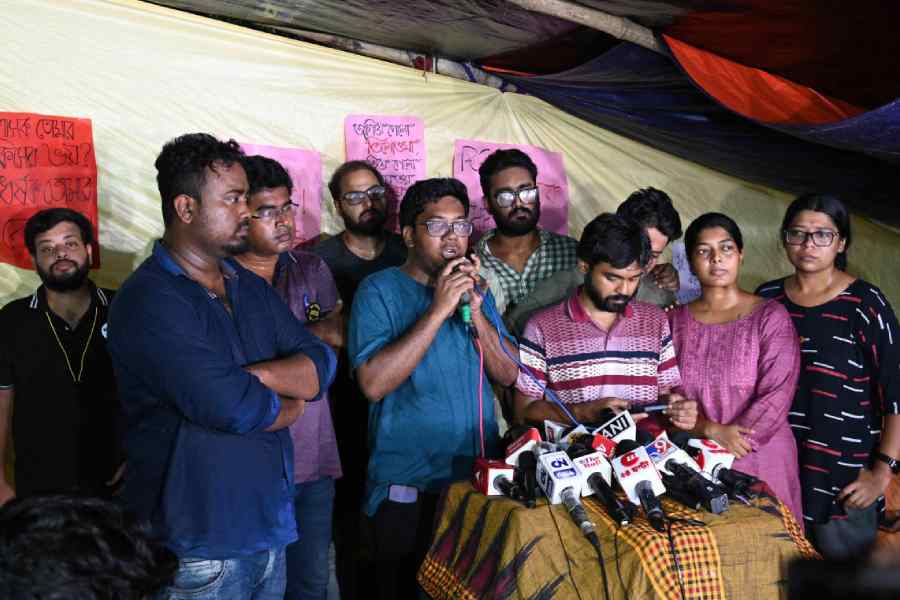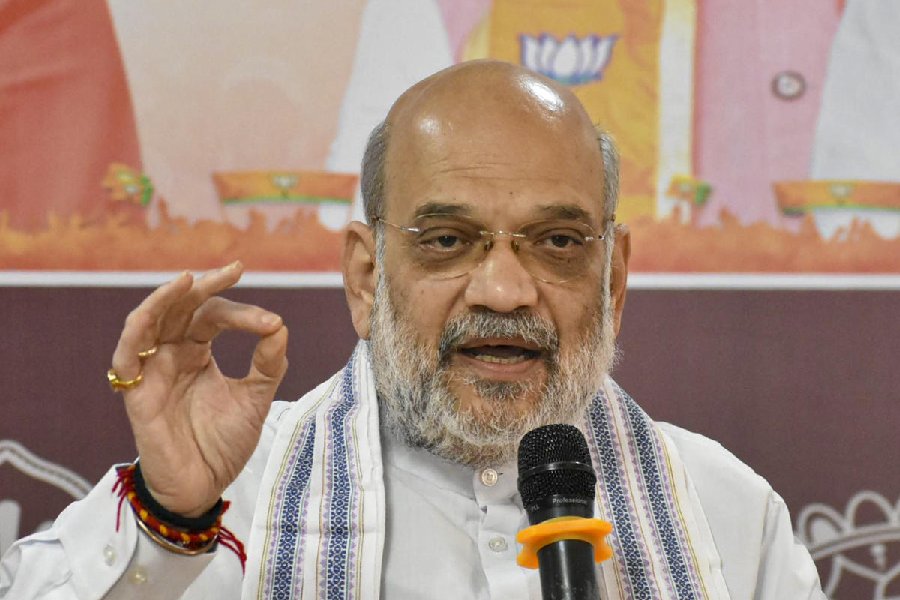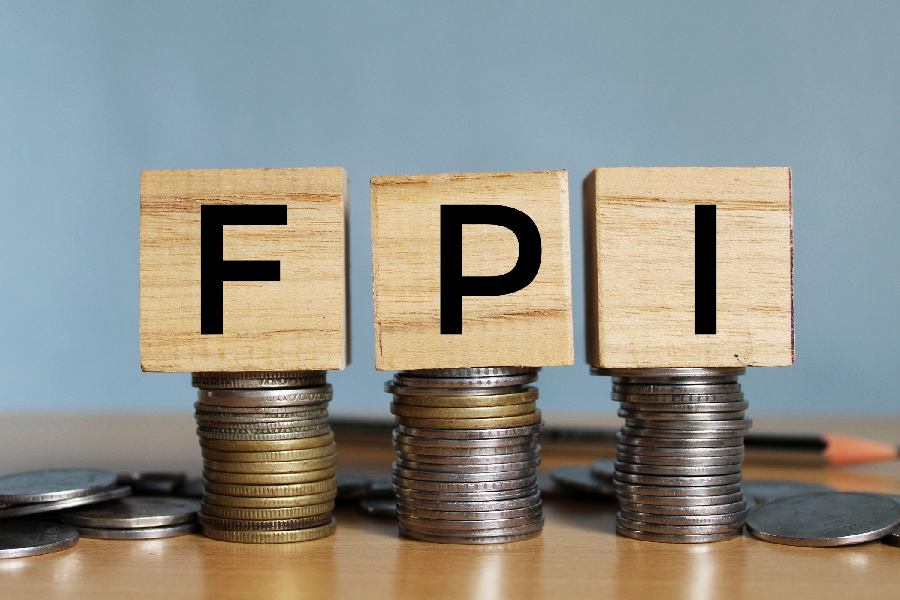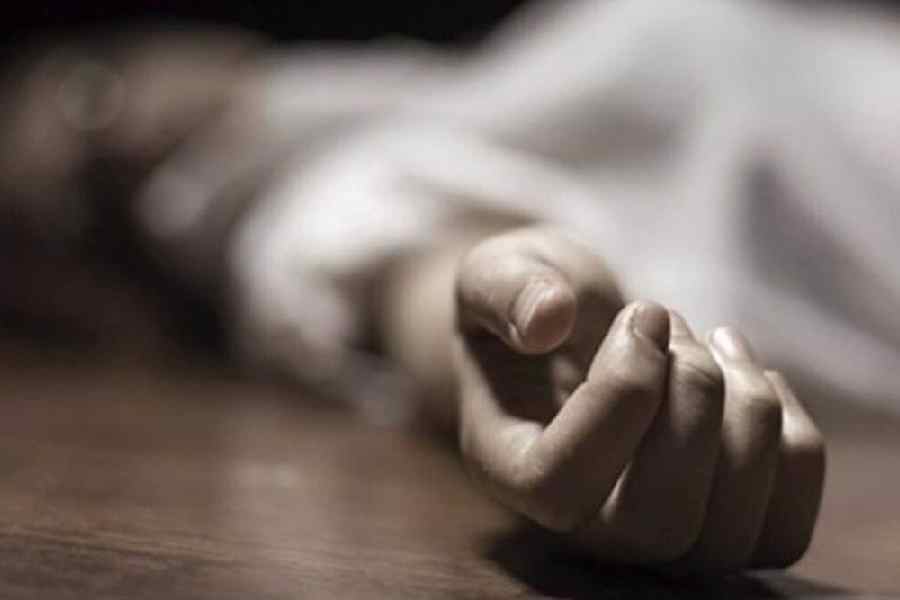After a crippling 42-day strike, Bengal’s junior doctors announced on Thursday night they would resume “essential services” at the hospitals from Saturday.
They, however, threatened a return to a “complete cease-work” unless the state government implemented safety measures at hospitals within seven days.
The sit-in outside Swasthya Bhavan will end on Friday with a march to the CBI office at the CGO Complex in Salt Lake. The junior doctors have appealed to citizens to join the march, which will press for a speedy investigation into the August 9 rape and murder of a postgraduate trainee at RG Kar Medical College and Hospital that triggered the strike.
The announcements came hours after chief secretary Manoj Pant sent a set of directives to the health secretary about the “safety, security and efficient functioning” of healthcare professionals and the measures to be implemented at government hospitals.
The junior doctors said they would not join OPD duties or perform planned surgeries for now.
“We will resume essential services in the hospitals from Saturday. We will draw up a standard operating procedure (SOP) on what essential services we will join. It will vary from one department to another. There will be SOPs specific to departments,” said Debashis Halder, a junior doctor from Medical College Kolkata.
“We have seen the flood situation in many places of our state and that is at the back of our mind,” he added.
Earlier in the afternoon, chief minister Mamata Banerjee had appealed to the “good sense” of the junior doctors while touring flood-ravaged neighbourhoods in Howrah.
“I want to tell the doctors that once the water recedes, snakes will take refuge on land… there will be diarrhoea, fever. I called the chief secretary and asked him to set up medical camps at a few places immediately,” she said.
“I want to set up medical camps. Doctors have not returned to work. I have tried as much as I could. I hope good sense will prevail, because people are hit by floods. The most important job for us now is to save lives. This is not the time to do politics.”
A junior doctor said they were “more or less happy” with Pant’s directives to the health secretary but wanted to wait and see whether these are implemented.
Halder underlined that while the chief secretary’s letter to the health secretary said the directives would be implemented soon, he had not set a timetable.
“You can say it is a seven-day deadline to the government. They must implement measures to enhance the safety and security in hospitals. If required, we will
again start a complete cease-work,” Halder said.
Aniket Mahato, a postgraduate trainee from RG Kar, said: “How soon we go back to the OPD and all other duties will depend on the positive steps taken by the government and the individual medical college authorities to improve safety and security and ensure that another Abhaya does not happen.”
The march from the road outside Swasthya Bhavan to the CBI office will start at 3pm on Friday.
“Our fight to secure justice for Abhaya has not ended…. We appeal to everyone to join this march,” Mahato said.
Junior doctors from RG Kar who had begun the cease-work on August 9 had at a general body meeting on Thursday threatened to pull out of the strike if it was prolonged further, a junior doctor said.
Pant’s directives came after the junior doctors emailed him at 2.34am on Thursday with 15 demands.
Earlier, after a meeting with the chief secretary at Nabanna on Wednesday, a delegation of junior doctors had said they were “disappointed”.
They claimed Pant and other senior officials had verbally agreed to many of their demands but did not mention these in the minutes drawn up by the administration.
The doctors said Pant had subsequently told them to email him their demands. Pant’s subsequent directives included many but not all of these demands, they said.
Some of the directives:
- Adequate availability of on-duty rooms, washrooms, CCTVs, drinking water facilities should be ensured at the healthcare facilities. “Works in this connection must be completed as early as possible.”
- *All committees, including an internal complaints committee, “should be made fully functional by the department”.
- A centralised referral system should be operationalised as early as possible.
- A centralised helpline number should be implemented to ensure the safety and security of healthcare personnel.
- The directions included the establishment of a real-time bed availability information system, a “robust” grievance redress system, and the adequate deployment of police, including policewomen, at all hospitals.










